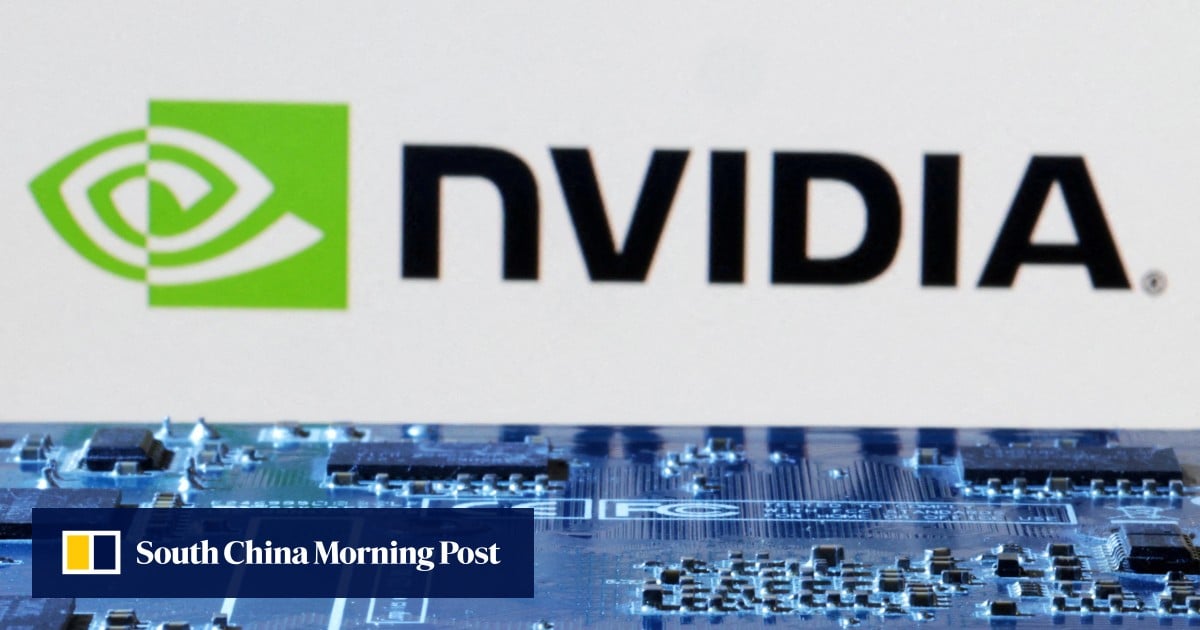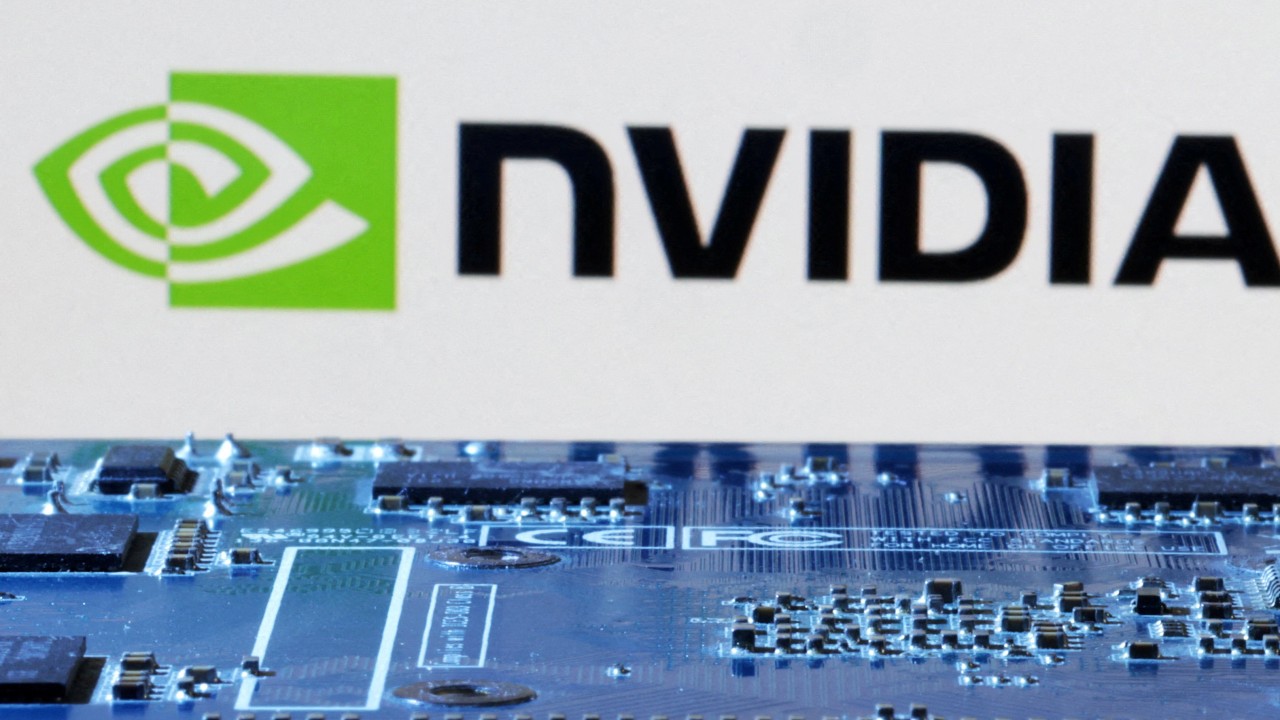
23 Feb Tech war: Nvidia’s stellar results show it can thrive amid China decoupling as it lists Huawei as potential AI chip rival

A massive stock surge for Nvidia Corp in the wake of stellar earnings this week shows that the world’s most important chip developer for the artificial intelligence (AI) age is managing to thrive without China, its third-largest market, say analysts.
Nvidia on Wednesday reported a 265 per cent jump in quarterly revenue that beat estimates, sending its shares up 16 per cent the next day, despite facing mounting US trade sanctions that restrict its ability to sell advanced chips to China. Its chief executive, Jensen Huang, said that “demand is surging worldwide across companies, industries and nations”.
Nvidia’s AI business in China fell to about US$900 million in the quarter ended January 28, from about US$2.9 billion in revenue in the previous quarter. The China data centre share in the segment dropped to 5 per cent of total revenue from 20 per cent in the preceding period, according to estimates by financial services firm Morningstar.
Nvidia’s newly-tailored China chip to compete with rival Huawei product
Nvidia’s newly-tailored China chip to compete with rival Huawei product
“Demand for Nvidia hardware remains very strong, even smaller countries are now competing for its graphics processing units [GPUs],” said Su Lian Jye, chief analyst with research company Omdia.
Huang confirmed that Nvidia has halted exports of restricted chips to China to comply with stricter US export controls imposed in October, and has not yet received US government approval to resume these exports.
Meanwhile, Nvidia identified Chinese telecoms and network gear giant Huawei Technologies as a competitor in certain categories of AI chips for the first time in its filing with the Securities and Exchange Commission.
The forthcoming financial year will be a banner one for Nvidia as demand continues to exceed supply, Morningstar analyst Brian Colello wrote in a research note.
Nvidia developed three new data centre GPUs – the H20, L20 and L2 – for Chinese customers after its A800 and H800 GPUs, also previously tailor-made for China clients to comply with an earlier version of US export controls, were banned from being sold in October.
Nvidia has started to take pre-orders for its H20, the most powerful GPU of the three that can be used by China-based customers for AI training, with a single card price ranging between US$12,000 and US$15,000, the Post reported in early February.
An industry source who declined to be identified due to the sensitivity of the matter, said on Friday that some Chinese clients have already started testing Nvidia’s new replacement chips.
Nvidia is expected to face more competition this year from local players as Chinese AI chips start-ups and Huawei try to take a bigger slice of the AI chip pie.
Huawei, which bounced back in smartphones in 2023 with its 5G-capable Mate 60 Pro handset equipped with a homegrown chip, has started promoting its Ascend AI chips, potentially a serious rival to Nvidia’s products, via its distribution channel partners.
